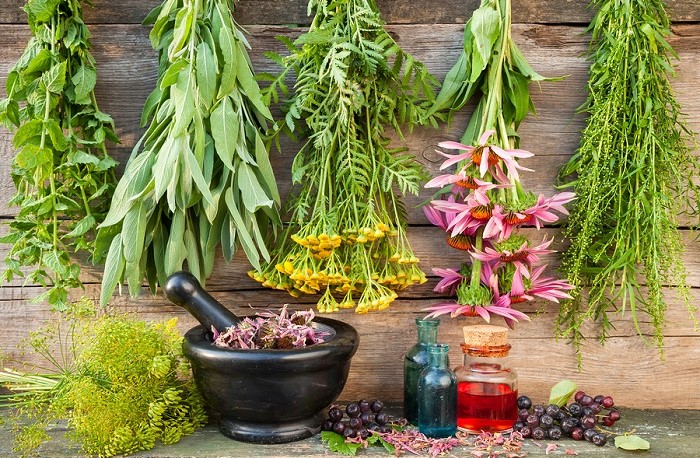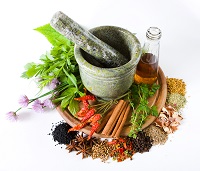More and more people are taking a look at herbs and herbal remedies for their common ailments. As a part of a healthier lifestyle, herbal remedies are found in household medicine cabinets just as much as aspirin and cough medicine. Keep reading to find out about the kinds of herbs are used for medicinal purposes.
A Bad Rap
Herbs for medicinal purposes are sometimes looked on as quackery. However, there is more of a relationship between herbs and modern medicine than people know. People all over the world have used herbs as well as berries, seeds, roots, leaves, bark and flowers to treat everything from a cold to indigestion to abdominal pain.
Scientists aren’t sure exactly how herbs work. There are a variety of compounds found in plants and it can be hard to separate the active ingredients. However, research is showing that there is value to using them for preventative maintenance as well as treating some conditions.
Once scientists learned to extract certain compounds from plants and create similar ones, plant use dropped off. The herb remedies fell into hearsay but have been making resurgence within the medical community. People want to return to their roots – literally.
Medicinal Herbs and Their Uses
Peppermint – It is great for candy but has several medicinal purposes as well. Leaves can be steeped in tea as a muscle relaxant, antispasmodic and antacid. Use leaves on the chest as an expectorant.
Calendula – This flower is used as a healing cream to fight inflammation. Use it to find relief from poison ivy.
Garlic – Tastes great on meats and in stews. Eat fresh cloves to help boost the immune system naturally as well as lowering blood cholesterol. Garlic is also an antibiotic.
Yarrow – This root can be used to stop bleeding externally. Also used as an antibiotic when ingested. Combine with lavender to repel insects.
Lavender – The purple flowers smell great. Used in essential oils to relieve headaches and stress. Lavender is one of the few essential oils that can be used topically without burning or damaging the skin. Use as an antibiotic and antifungal.
Chamomile – Steep the leaves in a tea as a sedative to help you sleep better. Also used as an anti-inflammatory.
Ginkgo biloba – We’ve all heard of this one for improving memory. Used as a supplement to help fight the effects of free radicals in the body.
Echinacea – Known as the “immune booster,” it is used to help fight off the effects of a cold or sore throat. When taking Echinacea, the duration of the cold is less.
Ginseng – Used to boost the immune system.
Ginger – Eating fresh ginger root can help fight upset stomach and digestive problems. Use also in tea with a bit of honey.
Tea tree oil – Used as an expectorant and an anti-inflammatory.
Nettle – Used to fight muscle spasms like menstrual cramps.
When using herbs for medicinal purposes make sure to check proper dosages used by herbalists for best results. Also, check with your doctor for any interactions with prescription medications.

